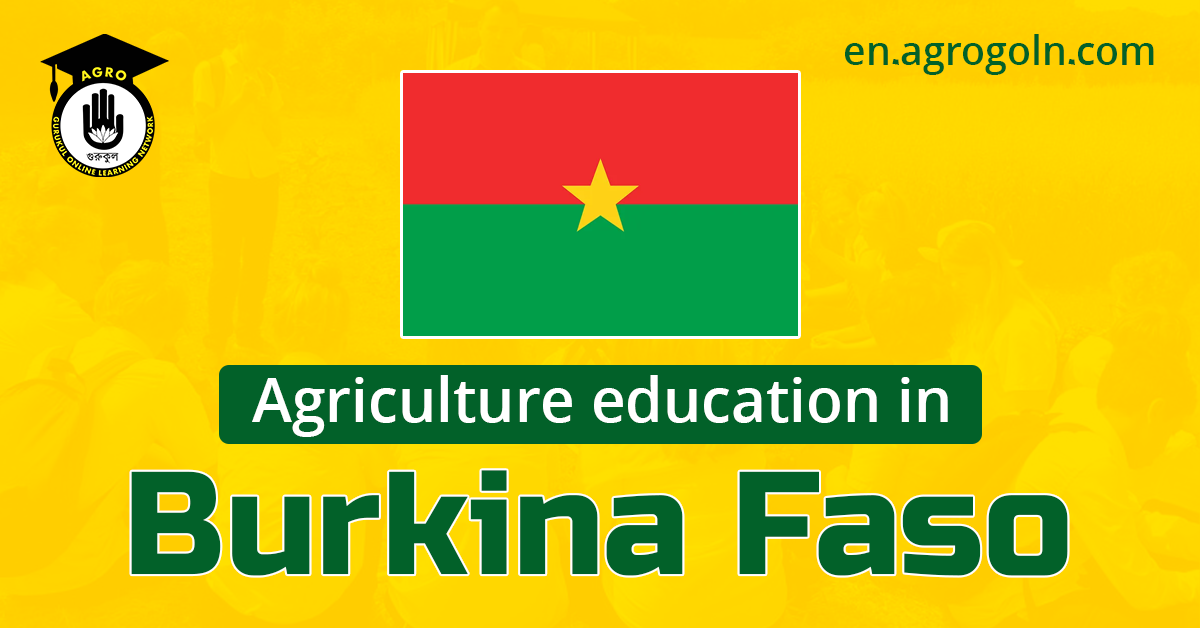Agriculture is the backbone of Burkina Faso’s economy, providing livelihoods to the majority of the population and contributing significantly to the country’s Gross Domestic Product (GDP). With a rich agricultural heritage and diverse agro-ecological zones, Burkina Faso has the potential to be a major player in food production and regional trade. However, to harness this potential and address the challenges faced by the agricultural sector, a robust and well-structured agricultural education system is critical. This article explores the state of agricultural education in Burkina Faso, its challenges, achievements, and the steps taken to cultivate a sustainable future for the country’s agriculture.
Agricultural Education in Burkina Faso
Historical Perspective of Agricultural Education in Burkina Faso
Agricultural education in Burkina Faso has deep roots that date back to the colonial era. During this period, the French colonial administration introduced rudimentary agricultural schools and experimental farms to train locals in basic farming techniques and promote cash crops.
After gaining independence in 1960, the Burkinabé government recognized the importance of agricultural education and took steps to expand the system. The establishment of agricultural training centers and the integration of agricultural education into the formal education system marked important milestones. The country’s first agricultural school, the National School of Rural Economy (ENESOR), was founded in 1968.
Current Status of Agricultural Education
Today, Burkina Faso has made significant progress in expanding its agricultural education system. The Ministry of Agriculture, Hydraulic Development, and Fisheries (MAHP) oversees agricultural education in the country. The system includes a network of agricultural colleges, research institutions, vocational training centers, and universities.
- Agricultural Colleges: Agricultural colleges in Burkina Faso offer practical and technical training in various agricultural disciplines. These colleges focus on developing skills in crop and livestock production, agribusiness, agricultural mechanization, and rural development. Some of the prominent agricultural colleges in the country include the Rural Development Institute (IDR) and the Higher Institute of Agronomy (ISA).
- Research Institutions: Burkina Faso is home to several research institutions dedicated to agricultural research and development. The National Institute of Environment and Agricultural Research (INERA) is a leading institution that conducts research on crop improvement, soil fertility, water management, and sustainable farming practices.
- Vocational Training Centers: Vocational training centers play a crucial role in providing practical skills to farmers and agricultural workers. These centers offer short-term courses in areas such as animal husbandry, crop production, and post-harvest management. The National Training Center for Rural Development (CENAFFEF) is one such institution that caters to the needs of rural communities.
- Universities: Burkina Faso’s universities offer undergraduate and postgraduate programs in agriculture and related fields. The University of Ouagadougou and the Polytechnic University of Bobo-Dioulasso are two major institutions that offer comprehensive agricultural programs.
Challenges in Agricultural Education
Despite the progress made in agricultural education, the sector faces several challenges that hinder its effectiveness and impact:
- Limited Access: Access to quality agricultural education remains a challenge, particularly in rural areas. Many farming communities lack educational facilities and struggle to access training and extension services.
- Infrastructure and Resources: Insufficient infrastructure, outdated facilities, and limited resources hamper the quality of agricultural education in some institutions. Lack of modern laboratories and equipment hinders practical learning and research.
- Faculty Shortage: There is a shortage of qualified faculty in some agricultural institutions. Many experienced professionals prefer higher-paying jobs in the private sector or international organizations, making it challenging to attract and retain talented educators.
- Curriculum Relevance: The curriculum in some agricultural institutions may not align adequately with the current needs and challenges of the agricultural sector. An updated and industry-relevant curriculum is essential to equip students with practical skills and knowledge.
- Gender Disparities: Women in Burkina Faso face significant barriers in accessing agricultural education and training. Cultural norms, early marriage, and limited opportunities hinder their participation in formal agricultural education.
Efforts to Address the Challenges
The Burkinabé government, in collaboration with international organizations and development partners, is taking proactive steps to address the challenges in agricultural education:
- Infrastructure Development: The government has initiated programs to improve the infrastructure and facilities of agricultural institutions. Investment in modern laboratories, libraries, and classrooms enhances the learning environment for students.
- Faculty Development: Efforts are being made to attract and retain qualified faculty members through competitive salaries, professional development opportunities, and research incentives. Partnerships with international organizations facilitate faculty exchange and collaboration.
- Curriculum Revision: The government is working to revise the agricultural curriculum to align it with the needs of the agricultural sector. The incorporation of entrepreneurship and business skills prepares graduates to become agripreneurs and contribute to rural development.
- Promoting Gender Inclusivity: Special programs and incentives are being introduced to encourage female participation in agricultural education. Initiatives that provide scholarships and promote women’s leadership in agriculture aim to bridge the gender gap in the sector.
- Public-Private Partnerships: Collaboration with private companies and agricultural cooperatives allows students to gain practical experience and exposure to real-world challenges. Public-private partnerships also contribute to research and development in the agricultural sector.
Focus on Sustainable Agriculture
Sustainable agriculture is a key area of focus in Burkina Faso’s agricultural education. With increasing challenges posed by climate change, land degradation, and water scarcity, the country recognizes the importance of promoting sustainable farming practices.
Agricultural education institutions are integrating sustainable agriculture principles into their curricula. Students are trained in soil conservation techniques, water management, agroforestry, and organic farming methods. Emphasis is also placed on promoting climate-smart agriculture and the use of drought-resistant crop varieties.
Conclusion
Agricultural education in Burkina Faso plays a vital role in driving the country’s agricultural development and food security. Despite facing challenges, the country has made commendable progress in expanding its agricultural education system and promoting sustainable farming practices. By investing in infrastructure, faculty development, and curriculum revision, Burkina Faso can further strengthen its agricultural education system, equipping its farmers and agricultural professionals with the skills and knowledge needed to cultivate a sustainable and prosperous future for the nation.
